The Parents’ Bill of Rights has received its third reading and Royal Assent at the Legislative Building in Regina on Friday.
The bill outlines several rights parents have to be involved in their children’s education.
“That’s what this bill at its very core is about, is about providing parents the right, not the opportunity, to support their child through the formative years of their life, and some very important decisions that children are facing through those years,” Premier Scott Moe said.
Despite calls from the Children’s Advocate and the Human Rights Commission, as well as calls from many parents, teachers, and students across the province, calling the bill a “violation of children’s rights,” the province passed the bill.
The Parents’ Bill of Rights outlines many different rights that parents have regarding their children’s education, including if the pupil is under 16 years of age, parents must provide consent before the pupil’s teachers and other employees of the school use the pupil’s new gender-related preferred name or gender identity at school.
The province invoked the notwithstanding clause of the Canadian constitution to ensure parents must provide consent if a child wants to change their gender identification in school.
As for concerns about parents not supporting their child’s decision to change their name or gender identity leading to further issues, Moe hopes that is not the case.
“I would hope that every family supports their child, regardless of any of the decisions that their child would make.”
Another concern brought forward by critics of the bill is that it targets transgender children.
“This is not in any way targeting anyone; this is targeting how we can best support our children in our community, and step one of that support is to provide the parents with that opportunity to support their children.”
Education Minister Jeremy Cockrill said the bill is intended so children will discuss their gender identity with their parents.
When asked about the policy possibly forcing children to come out to their parents, the Premier said children should have that conversation with their parents regardless.
“How does keeping this important from the parent help that child? How does hiding that information about a very important decision that a child is faced with help support that child in any way,” he said. “What this does is provide those supports to be built around that child so they can have that conversation to include their parents.”
As for implementing the policy, Cockrill said he and the Ministry are set to speak with the Saskatchewan School Boards Association and the 27 school divisions.
Cockrill did note that he expects parents and school staff to follow what is in the Education Act, including what is included in the Parents’ Bill of Rights.
Other parts of the bill include if sexual health content is to be presented to pupils in the school at least two weeks before the sexual health content is presented to the pupils, parents must be informed by the principal of:
- the subject matter of the sexual health content;
- the dates on which the sexual health content is to be presented to the pupils and
- if the parent or guardian so chooses, withdraw the pupil from the presentation of the sexual health content by giving written notice to the principal;
The bill also includes:
- act as the primary decision-maker with respect to the pupil’s education;
- be informed on a regular basis of the pupil’s attendance, behaviour and academic achievement in school;
- consult with the pupil’s teachers and other employees of the school with respect to the pupil’s courses of study and academic achievement;
- have access to the pupil’s school file;
- receive information respecting the courses of study available to the pupil, including online learning, and to make decisions as to which courses of study the pupil enrolls in;
- be informed of the code of conduct and administrative policies, including discipline and behaviour management policies, of the school;
- be informed of any disciplinary action or investigation taken by the school in relation to the pupil’s conduct;
- if the pupil has been expelled from school, request a review and reconsideration of the expulsion after the expiration of one year;
- be informed and consulted in relation to the pupil’s school attendance problems;
- be consulted in or request a review in relation to the pupil’s capacity to learn;
- excuse the pupil from participating in the opening exercises;
- be consulted before any medical or dental examination or treatment is provided to the pupil;
- be a member of the school community council or the conseil d’école, as the case may be, of the school.




